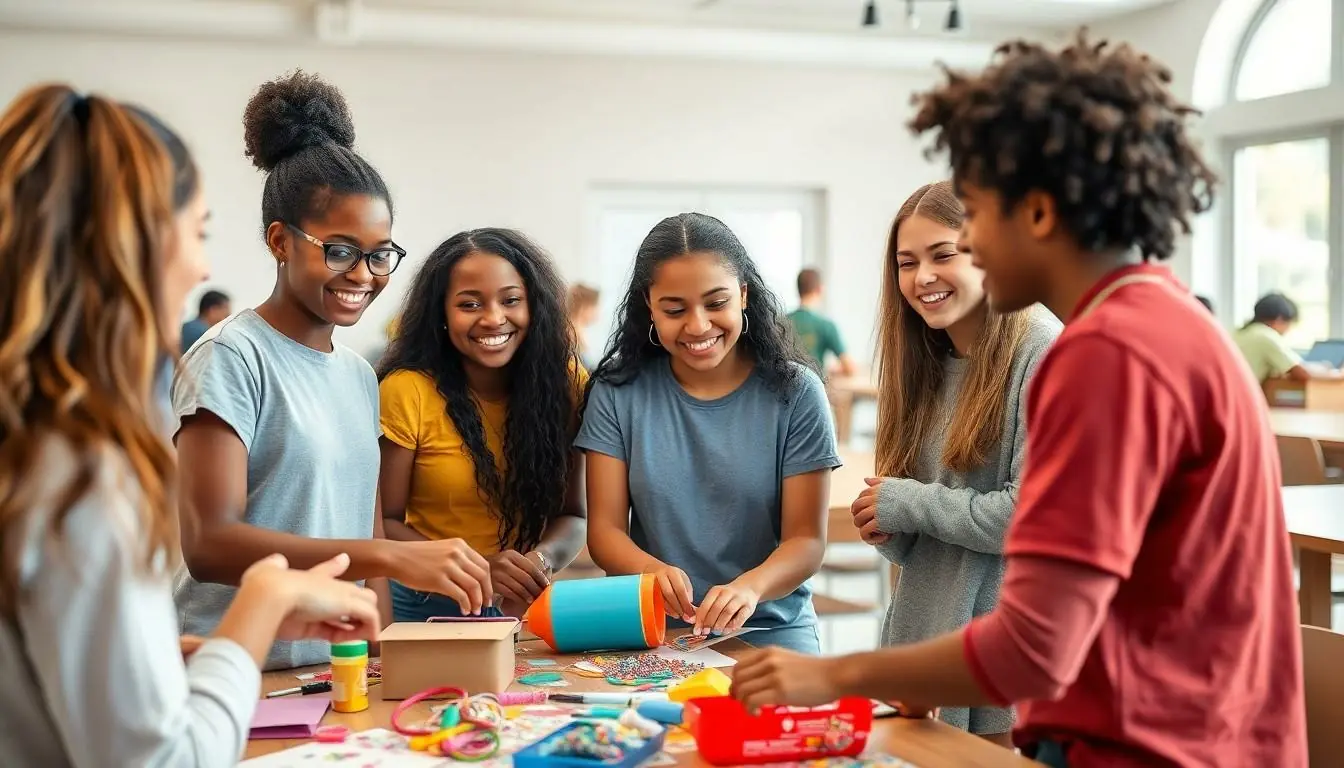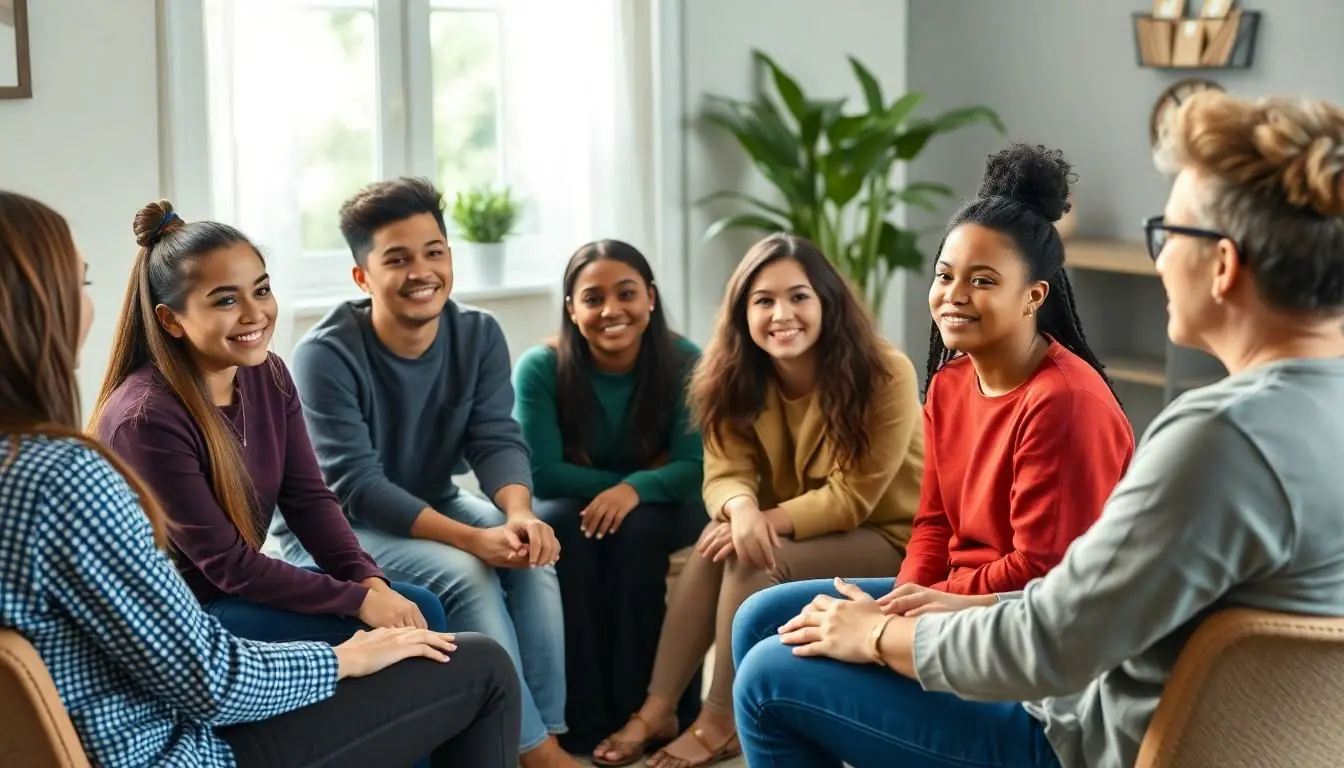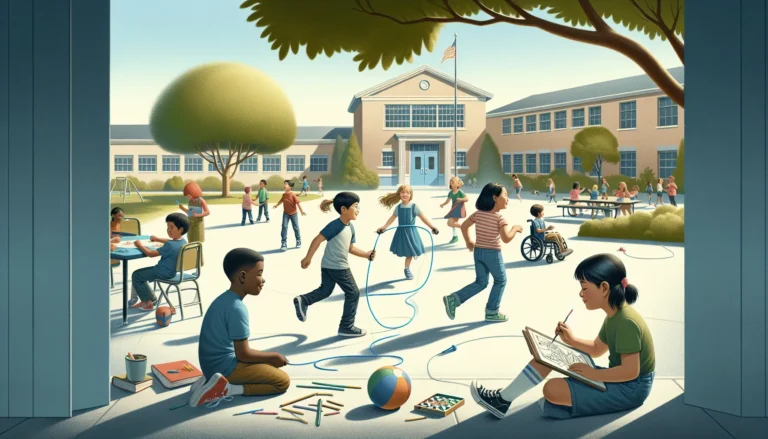Navigating the turbulent waters of adolescence can be a challenge, especially for troubled youth in Virginia. Thankfully, the state offers a lifebuoy of free programs designed to help steer these young individuals toward calmer seas. From mentorship to skill-building workshops, these initiatives provide invaluable support and guidance to help them thrive.
Imagine a world where every teenager can access tools to overcome obstacles without breaking the bank. That’s not just a dream—it’s a reality in Virginia. These programs not only offer hope but also create a sense of community, proving that even in tough times, there’s always a helping hand ready to lift them up. With the right resources, every young person can discover their potential and chart a brighter future.
Table of Contents
ToggleOverview of Troubled Youth Programs
In Virginia, several free programs support troubled youth facing various challenges. These initiatives focus on mentorship and skill-building, providing essential resources for personal development. Programs like the Virginia Youth Advocate Program (YAP) offer individual and group support tailored to meet unique needs.
Counseling services play a critical role in these programs. They address mental health issues, helping youth navigate emotional struggles effectively. Workshops on life skills, leadership, and vocational training equip young individuals with the tools they need for future success. Establishments like the Boys & Girls Clubs of Virginia also promote community engagement through recreational activities, fostering social skills and friendships.
Support networks contribute significantly to program effectiveness. Connecting troubled youth with mentors offers guidance from positive role models. Participants often find strength in shared experiences, creating bonds that last beyond the program’s duration. The chance to participate in community service projects further enhances personal growth, nurturing a sense of responsibility and citizenship.
Collaboration among various organizations amplifies the impact of these programs. Local nonprofits and government agencies work together to provide comprehensive support systems for youth. Various funding sources ensure these services remain free, making them accessible to those in need.
All these elements create a framework that empowers troubled youth in Virginia to overcome obstacles. By participating in these programs, teenagers gain confidence and resilience, setting the stage for brighter futures.
Types of Free Programs Available
These programs encompass a variety of services tailored to meet the unique needs of troubled youth in Virginia.
Counseling and Mental Health Services
Counseling services play a crucial role in supporting the mental health of youth. Through individual and group therapy, young individuals address emotional and psychological challenges. Trained professionals provide customized strategies to enhance coping skills. Organizations like Virginia Youth Advocate Program offer structured counseling sessions focused on personal development. Access to mental health resources helps youth gain insight and resilience. Crisis intervention services are also available for immediate support, ensuring youth are never alone during difficult times.
Educational Support Programs
Educational support programs provide vital resources that enhance academic performance. Tutoring and mentorship initiatives focus on improving grades and study skills. Programs like 4-H offer workshops that encourage personal and academic growth through hands-on learning. Additionally, vocational training prepares youth for future career opportunities. Assistance with college applications and scholarships boosts higher education accessibility. Community events often feature educational components that engage youth while fostering social connections. Overall, these programs create pathways for success, equipping youth with essential tools for their educational journey.
Notable Free Programs in Virginia
Various free programs in Virginia support troubled youth. Each initiative focuses on empowering young individuals through tailored services and community involvement.
Program 1: Description and Impact
The Virginia Youth Advocate Program (YAP) offers comprehensive support for troubled youth. It provides personalized counseling sessions that address mental health issues. Participants engage in group therapy to strengthen social connections. Through mentoring, young people gain guidance from experienced advocates, enhancing personal growth. YAP focuses on building life skills that prepare them for future success. Its impact includes improved emotional well-being and greater resilience among participants. Furthermore, YAP fosters a sense of community, helping participants feel connected and supported.
Program 2: Description and Impact
Boys & Girls Clubs of Virginia also plays a vital role in supporting troubled youth. This organization focuses on providing recreational activities that promote teamwork and social skills. Members participate in various programs that encourage leadership and community service. Through structured activities, youth develop friendships and learn to navigate challenges. The programs offered enhance self-confidence and foster a sense of belonging. Boys & Girls Clubs create safe spaces where young individuals can express themselves, contributing to their overall development and well-being.
How to Access These Programs
Accessing free programs for troubled youth in Virginia involves understanding eligibility requirements and going through a straightforward application process. Such initiatives aim to empower youth by providing necessary resources and support.
Eligibility Requirements
Eligibility for these programs often hinges on factors like age, residency, and specific needs. Participants typically range from 12 to 18 years old. They must be Virginia residents to qualify for services. Many programs focus on youth exhibiting behavioral challenges or mental health struggles. Additional criteria may include income restrictions, particularly for programs funded by grants. Determining eligibility usually involves personal assessments, ensuring participants receive the most appropriate assistance tailored to their unique circumstances.
Application Process
The application process for accessing these programs usually begins with contacting the respective organizations. Interested individuals can visit websites or call the programs directly for detailed information. Initial paperwork often includes an application form, which generally requires personal details and background information. After submission, assessments may occur to evaluate specific needs and identify the best fit program. Approval timelines vary; however, many organizations prioritize prompt responses to ensure timely support. Engaging in any required interviews is crucial to finalize enrollment and begin participating in the program.
Conclusion
Virginia’s free programs for troubled youth offer vital resources that empower young individuals to navigate their challenges. By providing mentorship counseling and skill-building opportunities these initiatives foster resilience and personal growth. The collaborative efforts of local organizations ensure that support is accessible and tailored to meet the diverse needs of participants.
As these youth engage in community service and recreational activities they not only build friendships but also develop a sense of responsibility and belonging. With the right support systems in place Virginia’s troubled youth can find hope and direction paving the way for brighter futures.





